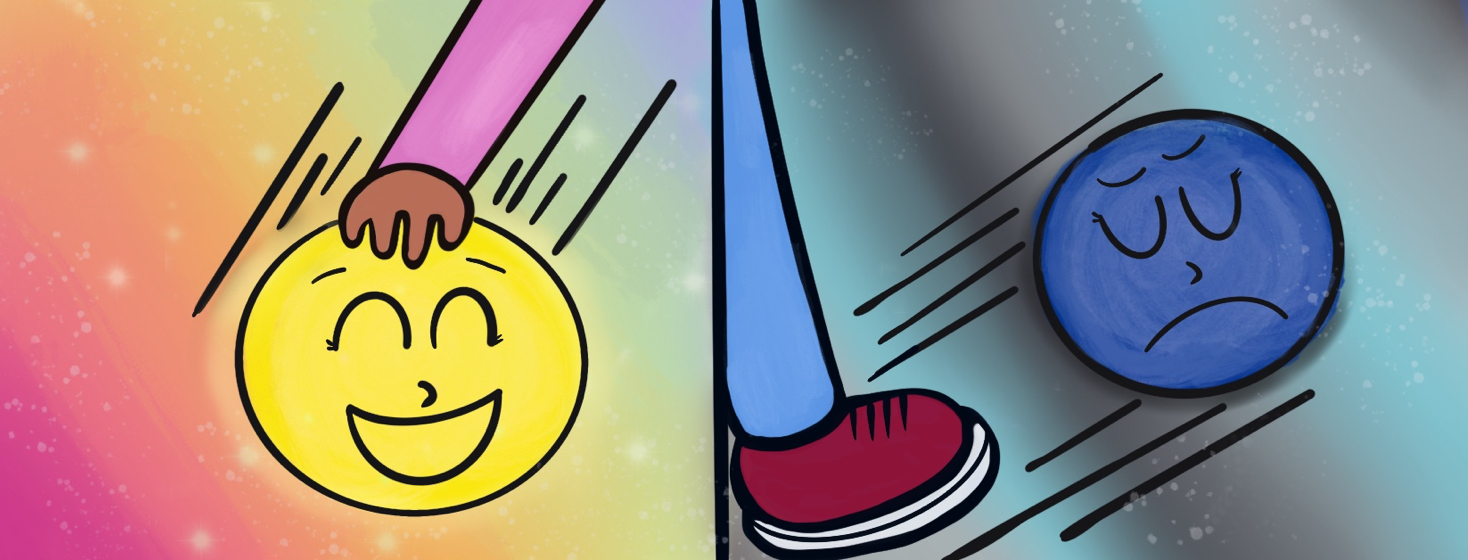The Responsibility of Awareness
This article may be an unpopular point of view, as most people I have met so far have usually supported an opposing perspective.
As most of us in the narcolepsy community know, there is an average of 8 to 15 years between narcolepsy symptom onset and diagnosis.1
I, myself, am proof of this as I lived my life undiagnosed for 12 years.
How my narcolepsy symptoms began
My symptoms began at the age of 15, first with a subtle weakening feeling in the knees when I howled with laughter. This was then followed by a momentary yet unmistakable tremor in my cheeks when the mere feeling of amusement arose.
A feeling that, although I didn't realise at the time, was now there to stay.
More symptoms developed over time
As the years went by, more unrelated (so I believed) peculiarities began to manifest: sleep paralysis accompanied by disturbing episodes of hallucinations, overwhelming drowsiness in the most inopportune moments that caused me to falter during conversations or tasks.
By the time I reached university, my concentration had begun to diminish, and my eyes closed more often than I liked to admit throughout the day. Somehow, at the time, I didn’t feel as though any of this was enough of a problem to require medical care. I genuinely believed people would mock me if I went to visit a doctor for simply feeling more tired than usual.
My struggles became impossible to ignore
So I pressed on and continued to struggle to fight my sleepy urges until it was no longer possible to ignore. At the age of 27 years old, I finally received my diagnosis.
So, as I previously advised, the following is simply my personal outlook on this matter, and I, of course, understand that it’s very possible that most people will not relate.
I'm glad I was diagnosed later in life
From my experience, the majority of people living with narcolepsy who have received a late diagnosis that I have encountered this past year, have affirmed that they would have preferred to have been diagnosed earlier on in life.
Personally, I don’t feel the same way. I know this might sound strange, but I am glad that I received my diagnosis later on in life.
There’s a part of me that realizes that many embarrassing and confusing occurrences could have been avoided with an earlier diagnosis, but the other half of me feels as though this may have been somewhat of a blessing in disguise.
I got to live a 'normal' life
In my ignorance, I got to live a somewhat “normal” life throughout my teenage and university years. I have this idea that if I had learned about my narcolepsy earlier on, I would have inevitably felt different from everybody else and consequently imposed restrictions on myself, which wouldn’t have allowed me to live everything I have lived.
In university, I partied more than I would like to admit. I did many things which I now would probably never even have the courage to do, but made memories that I will always cherish.
Ignorance is bliss
I think that with awareness comes responsibility, and as my own journey taught me, a feeling of guilt when you know that you are not respecting your condition. As they say, ignorance is bliss.
On the other hand, I do believe that it’s also a possibility that an early diagnosis could have led me to have a healthier relationship with my condition. And I would very probably not be struggling to accept it as I still do.
Embracing what life throws my way
The reality is, no matter the circumstance we find ourselves in, the only thing that matters is to try and embrace whatever life throws our way.
I truly do my best to try and always find a positive in every negative situation and always remember what David C. Hill wrote: "We can't control the world. We can only control our own reactions to it. Happiness is largely a choice, not a right or entitlement."

Join the conversation